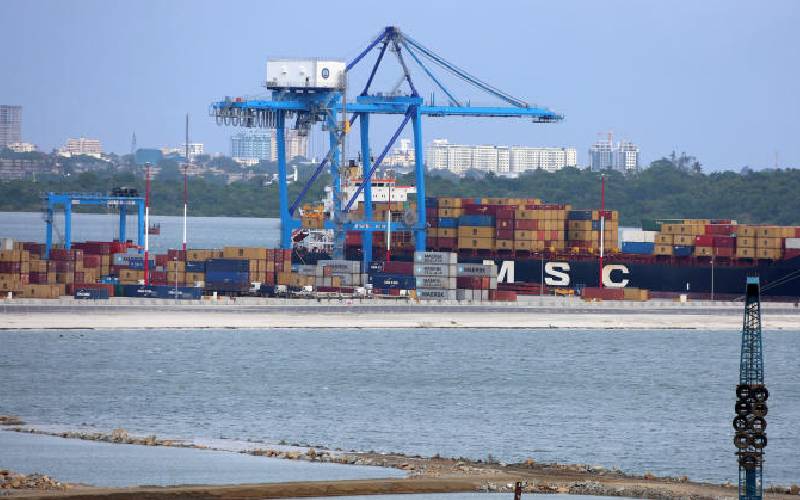×
The Standard e-Paper
Fearless, Trusted News

The Kenya Ports Authority's second container terminal has started taking shape as ships have already off-loaded containers on the yard reclaimed from the sea, May 11, 2016. [File, Standard]
The Mediterranean Shipping Company (MSC) will play a critical role in the running of the second container terminal at the Mombasa port.